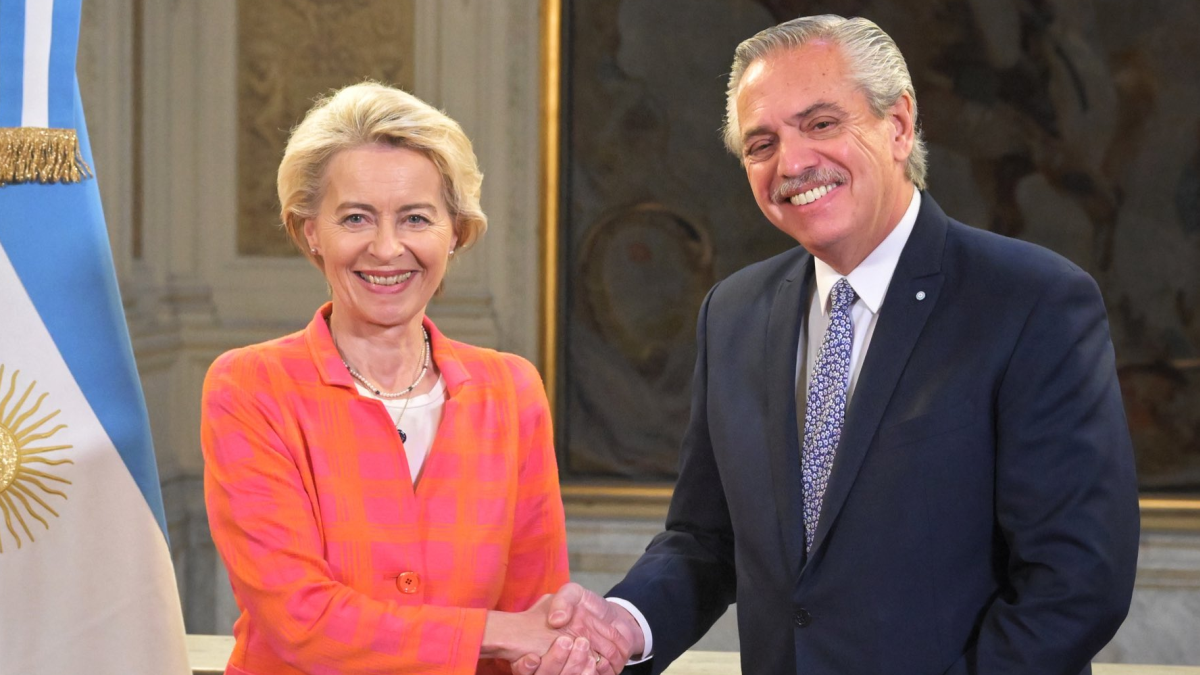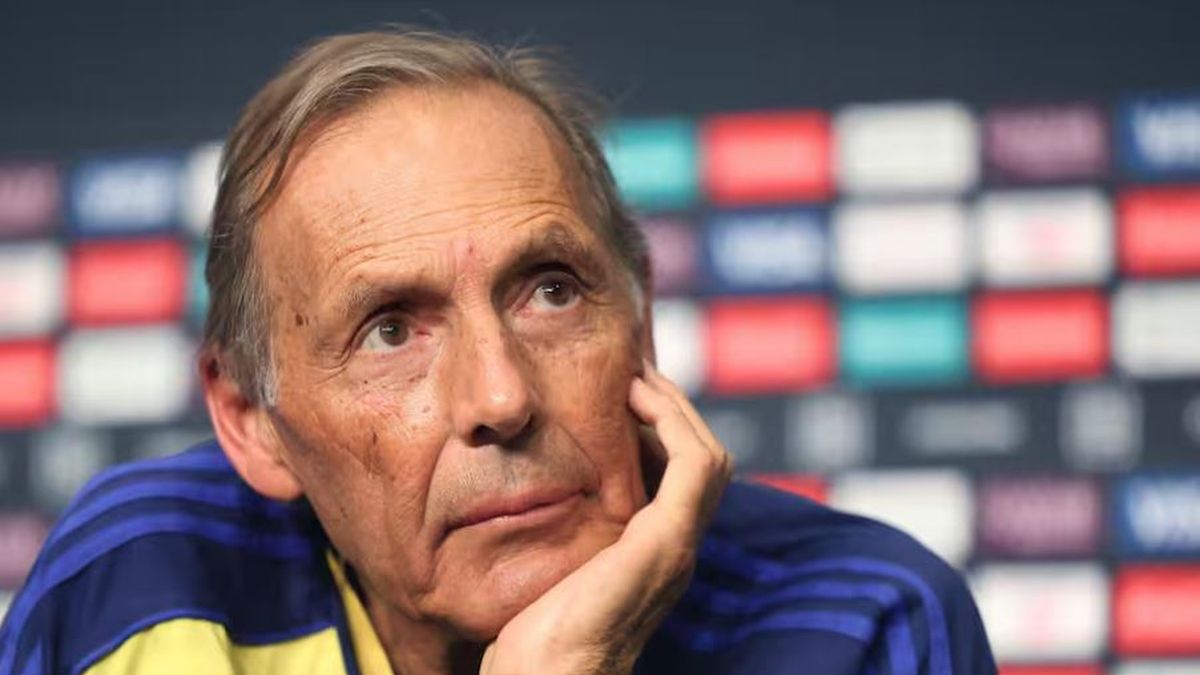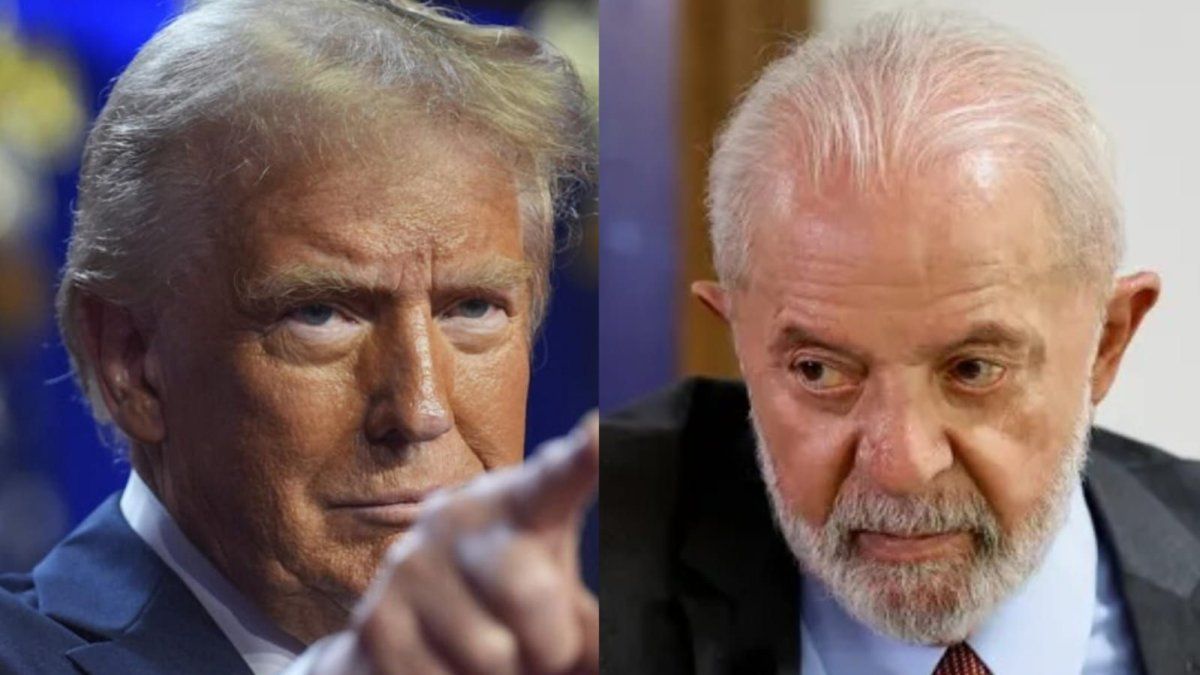With “President Lula and Fernández we have to work hard to reach a compromise,” Von der Leyen assured the press.who said that he expects the trade agreement to be concluded by the end of the year.
“This is a very important agreement that we are working on and much of the deal is already donewe are now in the process of exchanging clarifications of parts of the agreement,” said the president of the European Commission, who is on a tour of the region that took her to Brazil on Monday and to Argentina yesterday.
“The agreement is very important, since it will open the door to millions of highly relevant consumers on both sides of the Atlantic”he assured.
Upon receiving the European official yesterday in Buenos Aires, Fernández said that there is “political will” to sign the agreement, but clarified that the initial impediments raised by the European bloc are counterbalanced by the need for a “balanced” agreement, which takes into account count the asymmetries.
The German politician said that the EU has already sent Mercosur a “letter” of intent to move forward and Fernández spoke of “three points” that Argentina will present to its partners “not to block, but to advance” in the agreement.
On Monday, Lula had expressed “concerns” about the additional demands of the EU to Brazil in the framework of the negotiation of the agreement and said that his country has the right to take economic measures to reindustrialize as the European countries and the United States did recently. to combat the recession caused by the coronavirus pandemic and the war in Ukraine.
https://twitter.com/vonderleyen/status/1668672264378695703
The agreement we just signed on Critical Raw Materials is great news.
It promotes sustainable mining and aims to make the Argentine raw materials industry thrive, along the whole value chain.
That means new jobs, local jobs and so many opportunities for Argentinians. pic.twitter.com/fR6Ai0uPej
— Ursula von der Leyen (@vonderleyen) June 13, 2023
In Santiago, Von der Leyen also referred to the summit between the EU and the Community of Latin American and Caribbean States (Celac) to be held in July in Brussels, which he valued as an instance to “take action” and strengthen “historical and economics” between the countries involved.
“It is time that we do this with actions, we think very similarly in terms of the world approach, we have many historical ties, very strong economic ties,” said Von der Leyen, adding that the purpose of this summit is to “take to another level ” these relationships.
Von der Leyen visited Chile
The President of the European Commission, held a meeting with Boric on Wednesday at the Palacio de La Moneda, with the aim of launching two new cooperation actions between the EU and Chile focused on the development of the country’s renewable hydrogen industry.
Von der Leyen assured that his visit to the country is in line with “strengthening relations” between the two and gathering forces to face “global problems such as climate change, geopolitical tensions and challenges to develop an inclusive society.”
In that line, German politics valued Chile as “one of the most important projects” on green hydrogenand assured that the EU decided by 2030 not only to produce it, but to import it.
“We need collaborators and friends and for us, Chile has one of the most important projects in which we can embark together,” he said.
For his part, Boric valued the meeting and described it as “good news for our compatriots, but also for the world, because the green hydrogen industry offers great opportunities to move faster towards a green energy matrix.”
Along these lines, the president assured that this cooperation between Chile and the EU “brings investment and direct benefits” to the country. “As the green hydrogen strategy grows and our global market share grows, there will be more resources and a better quality of life for everyone,” he said.
In addition, the president appreciated that the national lithium strategy promoted by his government generated “main interest” on the part of Von der Leyen, who was open to collaborating and investing.
The EU is the main investor in Chile, with an accumulated amount of 64,753 million dollars, which represents 26% of the country’s total investment.
Source: Ambito




